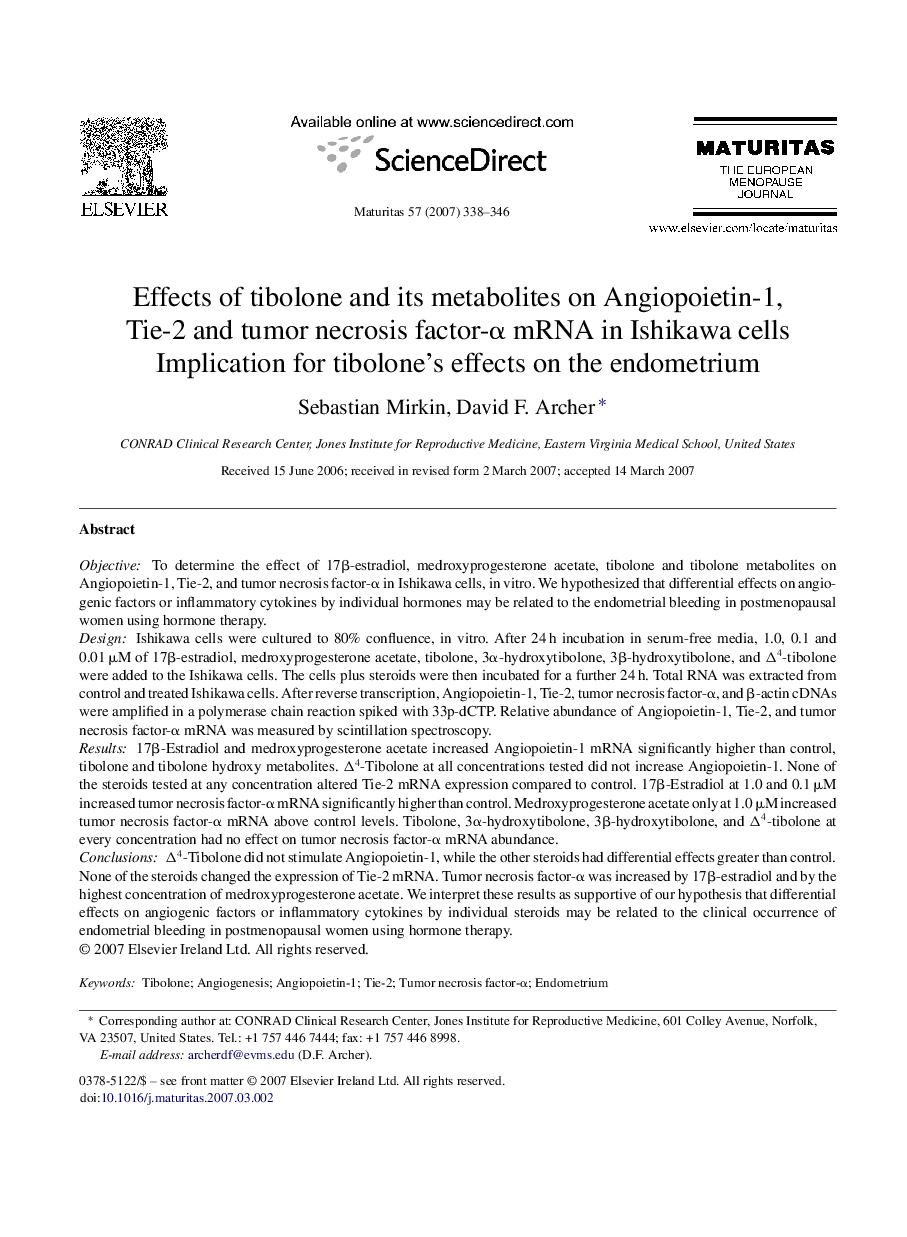| Article ID | Journal | Published Year | Pages | File Type |
|---|---|---|---|---|
| 1918787 | Maturitas | 2007 | 9 Pages |
ObjectiveTo determine the effect of 17β-estradiol, medroxyprogesterone acetate, tibolone and tibolone metabolites on Angiopoietin-1, Tie-2, and tumor necrosis factor-α in Ishikawa cells, in vitro. We hypothesized that differential effects on angiogenic factors or inflammatory cytokines by individual hormones may be related to the endometrial bleeding in postmenopausal women using hormone therapy.DesignIshikawa cells were cultured to 80% confluence, in vitro. After 24 h incubation in serum-free media, 1.0, 0.1 and 0.01 μM of 17β-estradiol, medroxyprogesterone acetate, tibolone, 3α-hydroxytibolone, 3β-hydroxytibolone, and Δ4-tibolone were added to the Ishikawa cells. The cells plus steroids were then incubated for a further 24 h. Total RNA was extracted from control and treated Ishikawa cells. After reverse transcription, Angiopoietin-1, Tie-2, tumor necrosis factor-α, and β-actin cDNAs were amplified in a polymerase chain reaction spiked with 33p-dCTP. Relative abundance of Angiopoietin-1, Tie-2, and tumor necrosis factor-α mRNA was measured by scintillation spectroscopy.Results17β-Estradiol and medroxyprogesterone acetate increased Angiopoietin-1 mRNA significantly higher than control, tibolone and tibolone hydroxy metabolites. Δ4-Tibolone at all concentrations tested did not increase Angiopoietin-1. None of the steroids tested at any concentration altered Tie-2 mRNA expression compared to control. 17β-Estradiol at 1.0 and 0.1 μM increased tumor necrosis factor-α mRNA significantly higher than control. Medroxyprogesterone acetate only at 1.0 μM increased tumor necrosis factor-α mRNA above control levels. Tibolone, 3α-hydroxytibolone, 3β-hydroxytibolone, and Δ4-tibolone at every concentration had no effect on tumor necrosis factor-α mRNA abundance.ConclusionsΔ4-Tibolone did not stimulate Angiopoietin-1, while the other steroids had differential effects greater than control. None of the steroids changed the expression of Tie-2 mRNA. Tumor necrosis factor-α was increased by 17β-estradiol and by the highest concentration of medroxyprogesterone acetate. We interpret these results as supportive of our hypothesis that differential effects on angiogenic factors or inflammatory cytokines by individual steroids may be related to the clinical occurrence of endometrial bleeding in postmenopausal women using hormone therapy.
